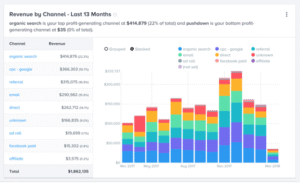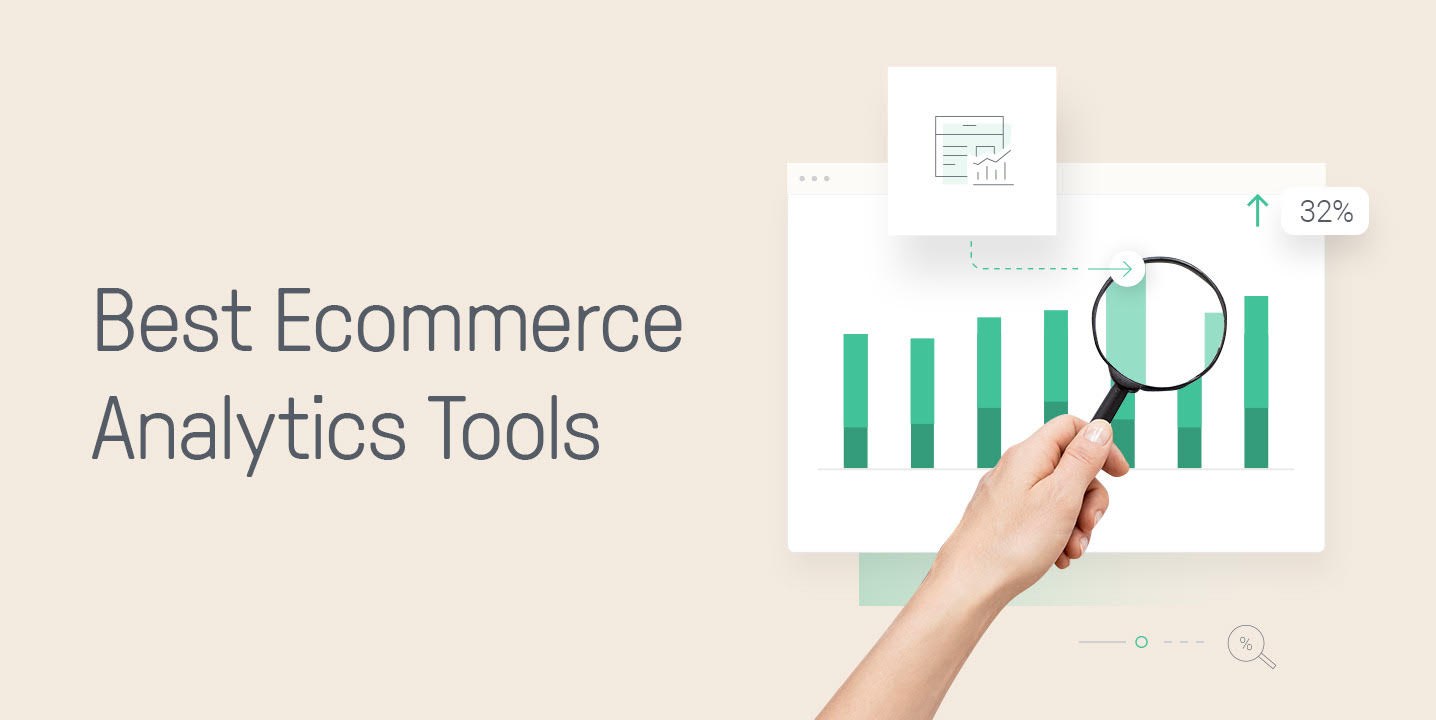Ecommerce Analytics Tools: The Key to Unlocking Data-Driven Success
In today’s competitive e-commerce landscape, data is the key to understanding your customers, optimizing your operations, and driving growth. Ecommerce analytics tools have become a vital part of any successful e-commerce business. These tools help businesses track key performance indicators (KPIs), optimize marketing campaigns, and ultimately make data-driven decisions that improve the bottom line. In this article, we’ll explore what ecommerce analytics tools are, their benefits, and the best tools available to online retailers in 2025.
What Are Ecommerce Analytics Tools?
Ecommerce analytics tools are software platforms that help businesses track, analyze, and report on various aspects of their online operations. These tools gather data on customer behavior, sales performance, website traffic, and marketing campaigns to provide actionable insights. By leveraging these insights, businesses can make informed decisions to improve their products, customer experience, and overall strategy.
Ecommerce analytics tools are essential for tracking everything from website performance to conversion rates and customer lifetime value (CLV). Without these tools, e-commerce businesses would struggle to make sense of the massive amounts of data they generate daily.

The Importance of Ecommerce Analytics Tools
The role of ecommerce analytics tools in modern business cannot be overstated. Here are a few reasons why ecommerce analytics tools are indispensable:
1. Tracking Key Performance Indicators (KPIs)
Key performance indicators (KPIs) are metrics that help you gauge the health and growth of your e-commerce business. Common KPIs include:
-
Conversion Rate: The percentage of website visitors who complete a desired action, such as making a purchase.
-
Average Order Value (AOV): The average amount spent per order.
-
Customer Acquisition Cost (CAC): The cost to acquire a new customer.
-
Cart Abandonment Rate: The percentage of customers who add products to their cart but don’t complete the purchase.
Ecommerce analytics tools track these KPIs and provide insights on where you can improve.
2. Enhancing Marketing Campaigns
Marketing campaigns are an essential part of any e-commerce business strategy. Ecommerce analytics tools allow you to measure the success of your marketing efforts by providing detailed data on customer behavior, engagement, and conversion rates. Whether you’re running Google Ads, Facebook ads, or email campaigns, these tools will help you optimize your marketing strategy to increase ROI.
3. Improving Customer Experience
Understanding customer behavior is key to improving their experience on your website. Ecommerce analytics tools provide data on how customers navigate your site, what products they view, and where they drop off. With this information, you can optimize the user experience, making it easier for customers to find products, add them to their cart, and complete the purchase.
4. Optimizing Inventory Management
By tracking product performance, ecommerce analytics tools can help businesses understand which products are selling well and which aren’t. This insight can help optimize inventory levels, ensuring you have the right stock available at the right time.
Top Ecommerce Analytics Tools for 2025
With the growing importance of data-driven decision-making, choosing the right ecommerce analytics tools is more important than ever. Below are some of the top ecommerce analytics tools available for businesses in 2025:
1. Google Analytics
Google Analytics is perhaps the most well-known ecommerce analytics tool available today. This free tool offers a wealth of information about website traffic, conversion rates, and user behavior. By setting up ecommerce tracking, businesses can track revenue, transactions, and other key ecommerce metrics.
Key Features:
-
Real-time data tracking
-
Ecommerce tracking (revenue, transactions, etc.)
-
Audience insights (location, age, devices used)
-
Conversion funnel analysis
Google Analytics is a powerful tool, but it requires a good understanding of how to set up and interpret data. For businesses looking for a comprehensive free solution, it’s a must-have tool in the ecommerce analytics toolkit.
2. Kissmetrics
Kissmetrics is an advanced analytics platform designed to help businesses track user behavior throughout the entire customer journey. Unlike Google Analytics, which focuses primarily on website traffic, Kissmetrics is designed to track individual customer interactions, allowing businesses to understand how visitors behave and convert over time.
Key Features:
-
Cohort analysis to track customer groups
-
Conversion funnel tracking
-
Customer segmentation
-
Advanced reporting on user behavior
Kissmetrics is an ideal tool for businesses that want a deeper understanding of how users interact with their website and products.
3. Mixpanel
Mixpanel is an analytics tool focused on user engagement and product analytics. While it’s similar to Google Analytics, it focuses more on tracking events and user actions across web and mobile platforms. Mixpanel excels in providing insights into how users interact with specific features and functions on your site, helping businesses understand their most valuable touchpoints.
Key Features:
-
Event-based tracking
-
A/B testing
-
Retention analysis
-
User segmentation
Mixpanel is perfect for businesses that want to dive deep into customer behavior and understand which features or products are driving engagement and sales.
4. Hotjar
Hotjar is a behavior analytics tool that focuses on user experience (UX). It offers heatmaps, session recordings, and surveys to help businesses understand how customers are interacting with their website. Heatmaps show where users click, scroll, and spend the most time, while session recordings provide a replay of user interactions.
Key Features:
-
Heatmaps and click tracking
-
Session replays to see how users interact with your site
-
Customer feedback surveys
-
Funnels and conversion tracking
Hotjar is an excellent tool for businesses looking to optimize their website design, improve user experience, and reduce cart abandonment rates.
5. Shopify Analytics
For businesses using Shopify as their ecommerce platform, Shopify Analytics provides built-in tools for tracking sales, customer behavior, and website performance. It allows merchants to see detailed reports on sales by product, customer demographics, traffic sources, and more.
Key Features:
-
Customizable reporting
-
Sales performance tracking
-
Customer behavior analysis
-
Integration with third-party apps
Shopify Analytics is perfect for merchants who want to keep their ecommerce analytics in one place and easily integrate with other Shopify apps.
How to Choose the Right Ecommerce Analytics Tools for Your Business
With so many ecommerce analytics tools available, it can be challenging to decide which one is right for your business. Here are some factors to consider when choosing the best ecommerce analytics tools:
1. Business Size and Complexity
If you’re a small business with a straightforward online store, tools like Google Analytics or Shopify Analytics may be sufficient for your needs. However, larger businesses with more complex customer journeys or multi-channel sales may need more advanced tools like Kissmetrics or Mixpanel.
2. Ease of Use
Some analytics tools can be complex and require technical expertise to set up and interpret. If you’re a beginner or have limited resources, tools with user-friendly interfaces and pre-built reports, such as Shopify Analytics or Google Analytics, may be a better fit.
3. Integration with Other Tools
If your business uses various software solutions (like email marketing platforms, CRM systems, or sales channels), ensure that your ecommerce analytics tools integrate with them. Many analytics tools, including Mixpanel and Kissmetrics, offer seamless integrations with other platforms.
4. Pricing
Pricing is always a factor to consider. Some tools, like Google Analytics and Hotjar, offer free plans with basic features, while others, like Mixpanel and Kissmetrics, charge based on usage or features. Make sure to assess the pricing structure and determine whether the tool’s value justifies the cost for your business.
Benefits of Ecommerce Analytics Tools
Ecommerce tools offer numerous benefits that can help businesses streamline their operations, improve customer experience, and boost sales. Here are some key advantages:
1. Informed Decision-Making
By providing real-time data, ecommerce analytics tools allow you to make decisions based on facts rather than assumptions. Whether it’s optimizing your marketing campaigns or adjusting your product pricing, these tools give you the insights you need to make data-driven decisions.
2. Better Customer Insights
Understanding customer behavior is essential for tailoring your marketing and sales strategies. Ecommerce analytics tools allow you to segment customers by demographics, buying habits, and behaviors, helping you create more personalized experiences and increase conversion rates.
3. Increased Conversion Rates
By tracking key metrics like bounce rates, cart abandonment, and traffic sources, analytics tools help you identify areas of improvement. This information can guide you in optimizing your website and marketing strategies to increase conversions.
4. Enhanced Marketing Campaigns
Ecommerce analytics tools help businesses understand which marketing channels are performing best. Whether it’s paid ads, organic traffic, or email marketing, these tools provide insights that help you optimize your campaigns for better ROI.
Conclusion
Ecommerce analytics tools are essential for businesses looking to thrive in the competitive e-commerce world. By leveraging the power of data, you can optimize your marketing efforts, improve the customer experience, and ultimately drive revenue growth. Whether you choose tools like Google Analytics, Kissmetrics, or Hotjar, the key is to use data to make informed decisions that can help your business succeed. As e-commerce continues to evolve, utilizing analytics tools will remain a critical part of your strategy for sustained success.



